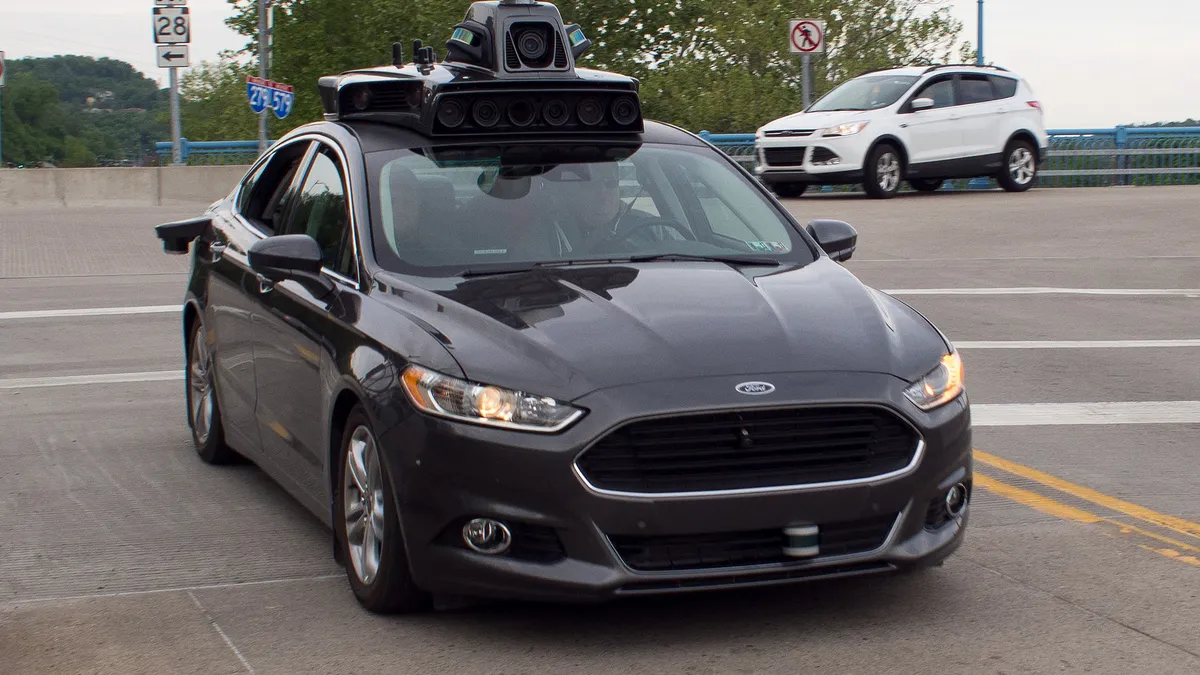Dive Brief:
- Numerous automakers are entering into various partnership or alliance models in the race to develop self-driving technology, Reuters reported Sunday.
- While Tesla, General Motors and Ford Motor are developing proprietary systems, opting to bring in suppliers exclusively, various companies looking to develop a standardized system are working in tandem with multiple partners to do so.
- Developing a self-driving car is like "sending a man to the moon," according to Reuters, as it requires machinery, software and security expertise unavailable to any single company. Companies as diverse as Mobileye, Nvidia, Delphi Automotive, BMW, Audi and Mercedes-Benz are at the forefront of these efforts.
Dive Insight:
The automotive industry has long been a case study for supply chain managers worldwide, as its cross-border sourcing, demand-driven practices and focus on innovation requires a daunting level of supply management, client relationship management and internal quality controls.
In most vehicles, at least 75% of automotive parts are not manufactured by the auto seller, but are created by a chain of suppliers. While for decades the auto industry was focused on hardware innovations like engineering tactics to improve fuel efficiency, horsepower, acceleration and safety, the industry is rapidly advancing to a new, digital age. After all, consumer experience within the vehicle has become a major selling point, specially with the rise of ride-sharing services and the promise of autonomous vehicles.
In addition, new proposed rules mandating inclusion of vehicle-to-vehicle communication devices within the finished car (and the trend that preceded it) has opened the door for technology manufacturers to become key partners with auto manufacturers. As auto manufacturers look to integrate cutting-edge technology into their vehicles, they will need specialists to develop the software in the first place. Ford, for example, has tapped BlackBerry as a tier 1 supplier.
While some companies mentioned by Reuters have long been in the innovation game for the auto industry, the entry of chip makers, cybersecurity providers and self-driving software providers (from mapping to vehicle integration) promises to further scale the auto industry's horizontal needs. Such cooperation and product openness in the race to develop the self-driving car appears more likely to lead to a speedy return on investment, as specialists use their competitive advantage to guarantee success.












